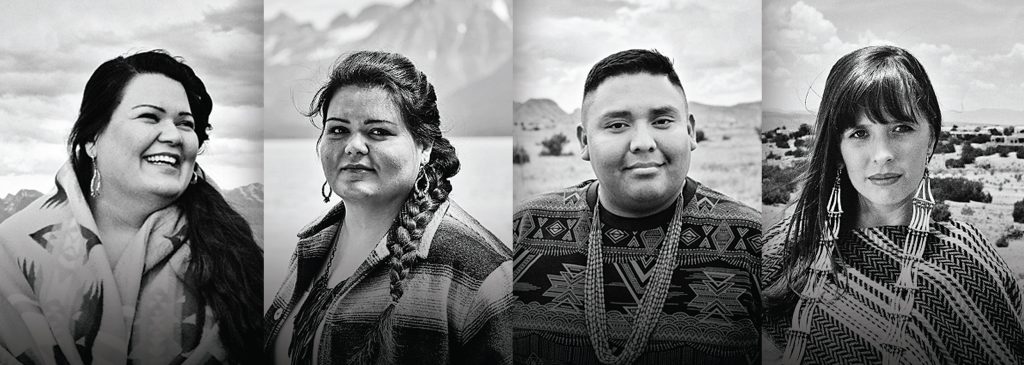Tribal college alumni report high levels of career satisfaction and community engagement, according to a new report released by Gallup and the American Indian College Fund.
By Paul Boyer

Students who graduate from tribally controlled colleges are more likely to say their alma mater prepared them for life after college and most graduates—including those who earned STEM degrees—are pursuing meaningful careers within their own communities, according to newly released report by Gallup and the American Indian College Fund.
Findings are based on a survey of 5,000 tribal college alumni and summarized in a 26-page report, Alumni of Tribal Colleges and Universities Better Their Communities. Overall, the report found that “tribal colleges and universities provide a meaningful educational experience, and alumni report many positive outcomes.”
Among those surveyed, 74 percent reported pursuing careers that serve their communities and more than half report a deep interest in the work they do. This level of engagement exceeds national averages, the report noted. Fifty percent strongly agreed that “My job gives me the opportunity to do work that interests me,” compared with 37 percent of college graduates nationally.
Tracking five indicators of wellbeing, the Gallup study reported that tribal college students were “thriving” at rates exceeding college graduates nationally in nearly all categories, especially in measurements of community, social, and career wellbeing.
The survey also tracked alumni career paths, finding that over 20 percent are working in STEM fields, including health care (12%), science/engineering/architecture (4%), computer, information systems/ mathematical (3%), and manufacturing or construction (2%). STEM-related work within other disciplines, such as education and community service, was not separately tracked.
Graduates reported a high level of satisfaction with the amount and quality of support they received while in college. Among the findings:
- “Fifty-three percent of graduates strongly agree they had a mentor who encouraged them to pursue their goals and dreams — compared with 28% of alumni nationally.
- “TCU graduates (59%) are almost twice as likely as American Indian graduates nationally (33%) to strongly agree that their professors/instructors cared about them as a person.
- “Eighty-one percent of TCU alumni strongly agree they had at least one professor/ instructor who made them excited about learning— significantly higher than college graduates nationally (71%).”
This level of support helps explain the graduates’ academic success and satisfaction, the report argued. “Numerous studies of Native students who attend mainstream colleges and universities suggest that elements such as family support, supportive and involved faculty, institutional commitment, and cultural traditions are key factors that impact a student’s persistence in college.”
Overall, findings suggest that tribal colleges are fulfilling their mission to not only educate students, but to also strengthen tribal nations. “These graduates possess a strong sense of engagement in the areas where they live, have strong relationships and love in their lives, and feel fulfilled in how they occupy their time by liking what they do every day.”
